Dear Reader,
Throughout the month of March 2018, EdusoundsNg conducted an online survey on early years literacy practice among families in Nigeria. The survey’s questions and guide were:
- Before your child began primary school, how often did you or someone else in your home do the following activities with him or her? This question was followed with a list of specific questions with three response options of: ‘often’, ‘sometimes’ and ‘never or almost never’.
- This survey is interested in knowing the literacy activities you engaged in at home with your child and not the one that he/she might have experienced while attending an early years setting like a daycare, crèche, kindergarten or nursery school.
A total number of 78 respondents participated in the survey. 64.1% of the participants were female while 35.9% of the participants were male. 91% had higher education and 9% had only primary education.
About 65% of the respondents reside in Lagos. Hence, due to the imbalance of the respondents’ level of education attained and geographical location, this survey is not an absolute reflection of the state of early years’ literacy practice by families in Nigeria.
It is our hope that families, educators and individuals interested in children’s literacy education will make positive use of this survey. We hope you would enjoy reading the report.
To all our participants and those that helped us in sharing the link to the survey, you’re much appreciated and we say, thank you.
Yours sincerely,
Editor
Over half of the respondents regularly read books to their children before they start primary school, while slightly above one-third of them sometimes read books to their children and over one-tenth do not read at all to their children. However, reading to children before they commence formal schooling is highly encouraged by reading experts; there are many research evidence to back up the efficacy of the practice.
This survey indicates that the art of story telling is not something that is practiced by most families. While this could be due to many factors that our survey did not cover, however, story telling is a very good way of developing listening and literacy skills in children. Story telling is very important, hence, the statement of late Professor Chinua Achebe – the author of Things Fall Apart – resonates here, when he said in a CNN interview that
I think story telling was my life. I was very curious about story telling. Even attempting to remember the first one is like trying to remember the day you were born. I’m not sure you can!
60.3% (47) of the respondents ‘often’ sing children’s rhymes to their pre-school age children, making it the highest single practice by respondents, out of all the survey questions. 35.9% (26) of the respondents ‘sometimes’ engage in the practice with their children, while only 5.1% (4) do not engage in singing rhymes to their children. This is an area that a more detailed and focused research can be conducted on, so that places like: hospitals, antenatal & postnatal clinics, community centres and daycare centres, as well as professionals – paediatricians, nannies, early years educators – that engage with families of pre-school age children can provide them with practice sessions, books or audiovisual media products of children’s rhymes and lullabies, especially those that are in the native languages of the families.
Most of the families make provision for alphabet toys and they use it with their children. Although, about half of the respondents either ‘sometimes’ give their pre-primary school age children alphabet toys to play with or do not use it at all. But the remaining half of the respondents regularly make use of it.
It is important to note that alphabet toys can be used to systematically introduce children to spell of words, particularly those words that relate to some of the household items that are commonly found around them and whose names are made up of few letters, monosyllable, short or long vowel sounds.
About two-third of the respondents either ‘sometimes’ talk or do not talk about what they have read with their children. Notwithstanding, engaging in discussions with young children on stories or pictures in a children’s book that one had just read to them, gives both the adult and the child the opportunity to interact constructively in a very relaxed and fun filled way. More importantly, it gives the adult the opportunity to informally develop in a child the ability to learn new words and develop the use of sequence, syntax, structure and inflections in conversations.
Playing word games is one area that over two-third of the respondents do not engage in. And only less than one-third of the families do engage in it. Although, as someone that is bilingual, I normally use the opportunity to call out an object’s name in my native language to teach my children the basics of the language; while I would then follow up with a brief explanation on the word, usually using a blend of both Yoruba and English. For instance, igi in Yoruba can mean tree or wood, and when joined with a suffix it could mean firewood as in ‘igi-idana’ or big tree ‘igi-nla’.
Most families that participated in the survey either ‘often’ made their pre-primary school age children to write letter or words (57.7%) or ‘sometimes’ (30.8%) do so. And 11.5% of the families do not engage in the practice. Writing letters or words at the early years can be encouraged in a very organic way. For instance, by allowing a child to scribble on a paper or use finger or chalk to write on sand or chalkboard respectively.
Over four-fifth of the respondents either ‘often’ (56.4%) or ‘sometimes’ (32.1%) talk about things they have just done to their children. By doing this, families are creating avenues for themselves and their children to talk and engage constructively in a fun and relaxed manner.
Almost all the families that participated in the survey engage in reading aloud signs and labels to their pre-school age children. This practice gives them the opportunities to regularly develop their children’s vocabularies using basic household items with little time spent doing it. Perhaps, this approach provides families with the opportunities to regularly engage their young children cognitively.
Finally, we are grateful to all our participants and those that helped up us to create awareness for the survey. Please reference EdusoundsNg if you’re going to use this survey , and do so with the caveats that all respondents were anonymous and that the survey is not conclusive as an evidence for any major policy or decision making. And do not change the data from what we have presented here.
You can check out our suggested list below for sources for good literacy practice at the early years level, and if you know of other sources that you think should be part of the list, kindly leave us a message in our comment section. Thanks!
Books
- Ready, Set, Read!: A Start – To – Finish Reading Program Any Parent Can Use by Barbara Curtis.
- The Read Aloud Handbook: Sixth Edition by Jim Trelease.
- Reading magic: Why reading Aloud to Our Children Will Change Their Lives Forever by Mem Fox and Judy Horacek.
- Reading Together: Everything You Need to Know to Raise a Child Who Loves to Read by Diane Waxer Frankenstein.
- Read for Your Life by Gladys Hunt and Barbara Hampton.
- Baby Read Aloud Basics: Fun and Interactive Ways to Help Your Little One Discover the World of Words by Caroline J. Blakemore and Barbara Weston Ramirez.
Websites
Please, leave your thoughts on this post in the comment section and feel free to share the article with your contacts. Thanks for taking out of your precious time to read my article/s!
you like this post, kindly subscribe and/or follow me on Twitter @otukogbe and @EdusoundsNg or on Facebook at edusoundsng.
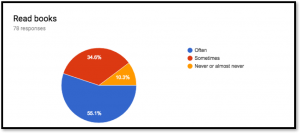
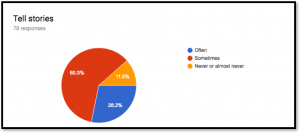
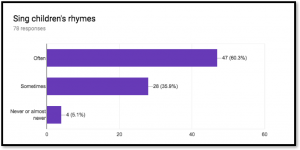

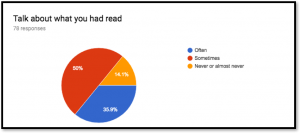
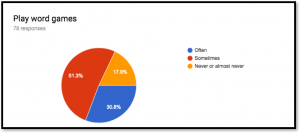


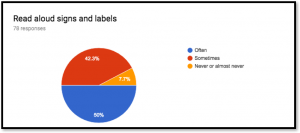
It’s another big one from edusounds. Reading to children can never be over emphasized as it will be evident in all the child grows up to be able to read, write, comprehend, discuss, suggest and even reject.
It was like an addiction for me and you know we carry a lot more than we know in our genes. My eight year old is an omnivorous reader and I don’t know if there exist another habit to replace reading for her.